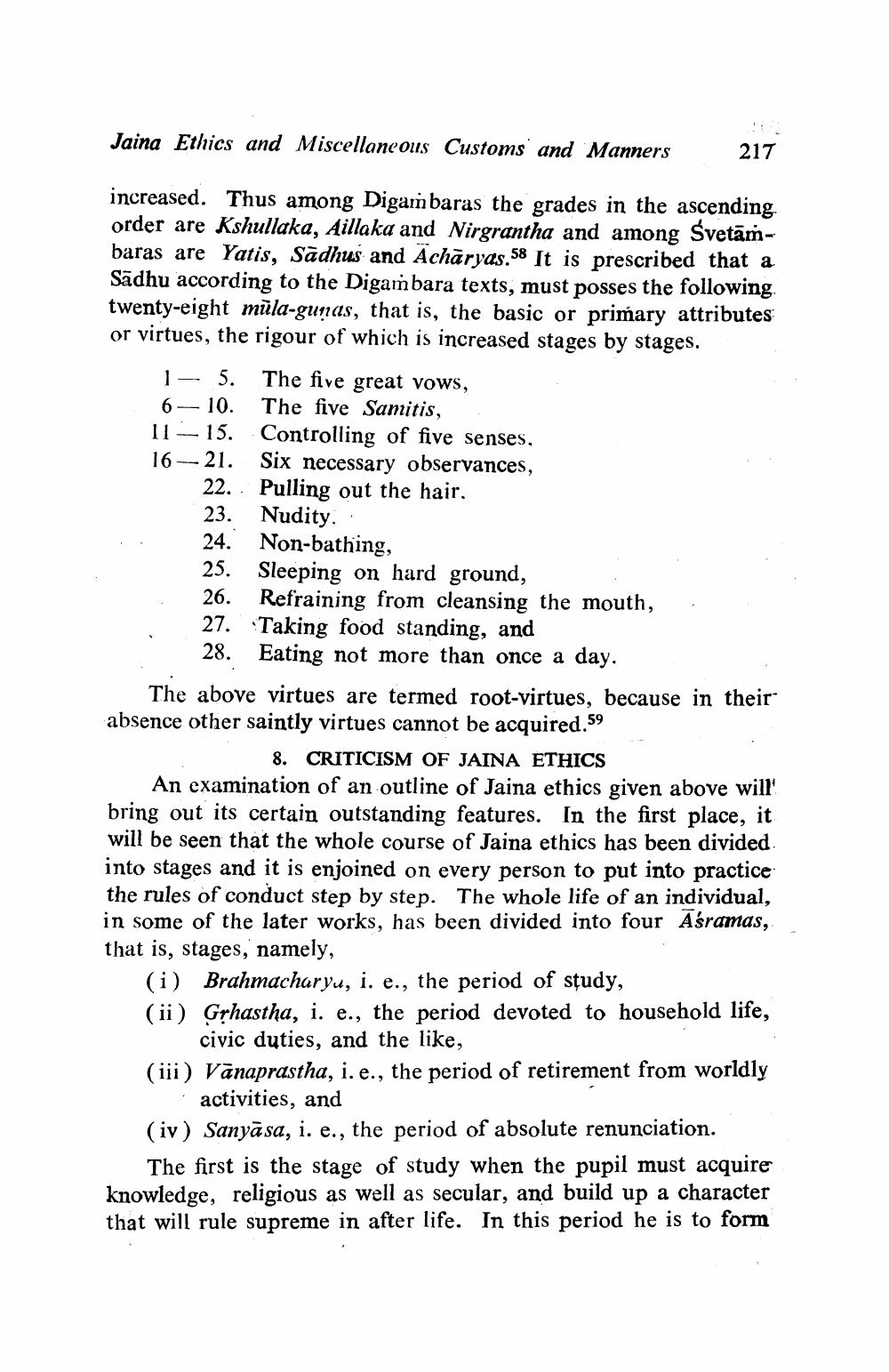________________
Jaina Ethics and Miscellaneous Customs and Manners
217
increased. Thus among Digambaras the grades in the ascending order are Kshullaka, Aillaka and Nirgrantha and among Śvetāmbaras are Yatis, Sadhus and Achāryas. 58 It is prescribed that a Sädhu according to the Digambara texts, must posses the following twenty-eight mūla-gunas, that is, the basic or primary attributes or virtues, the rigour of which is increased stages by stages.
1 - 5. The five great vows, 6 - 10. The five Samitis, 11 - 15. Controlling of five senses, 16 --- 21. Six necessary observances,
22. . Pulling out the hair. 23. Nudity. 24. Non-bathing, 25. Sleeping on hard ground, 26. Refraining from cleansing the mouth, 27. Taking food standing, and
28. Eating not more than once a day. The above virtues are termed root-virtues, because in their absence other saintly virtues cannot be acquired.59
8. CRITICISM OF JAINA ETHICS An examination of an outline of Jaina ethics given above will bring out its certain outstanding features. In the first place, it will be seen that the whole course of Jaina ethics has been divided into stages and it is enjoined on every person to put into practice the rules of conduct step by step. The whole life of an individual, in some of the later works, has been divided into four Aśramas, that is, stages, namely,
(i) Brahmacharyu, i. e., the period of study, (ii) Grhastha, i. e., the period devoted to household life,
civic duties, and the like, (iii) Vānaprastha, i. e., the period of retirement from worldly
activities, and (iv) Sanyāsa, i. e., the period of absolute renunciation.
The first is the stage of study when the pupil must acquire knowledge, religious as well as secular, and build up a character that will rule supreme in after life. In this period he is to form




